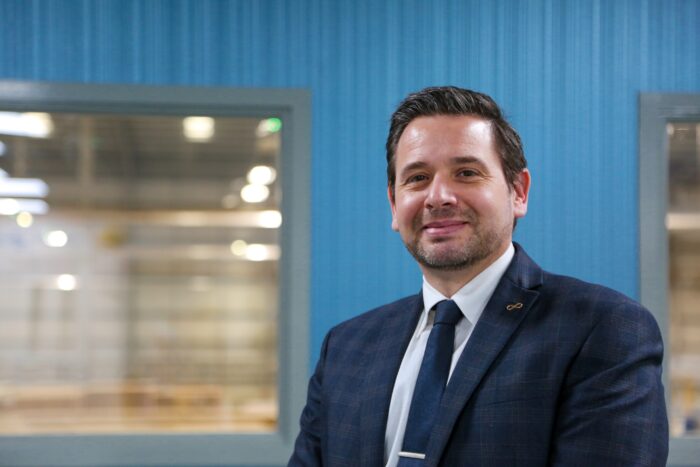
Modular and aluminium: the perfect marriage for twenty-first century construction
Nick Cowley, CEO of Modular Group Investments, makes the case for aluminium as the modular construction material of the future.
The future of construction is modular. At MGI, we believe that the future of modular is aluminium.
The arguments for MMC are now widely known in the sector, and proving increasingly persuasive.
Britain has an enormous housing shortage – and traditional housebuilding can’t meet it.
Ministers have committed to building 300,000 new homes a year, but we’re nowhere near achieving that.
The closest we’ve got so far is 250,000 – and that was before Covid, and the huge disruptions to materials and supply it brought.
Even if we just wanted to ensure Britain has enough homes to live in, that would be enough to warrant a major change in direction.
However, we’ve also got the environmental aspect to deal with.
Last year, the government reaffirmed its commitment to reach net zero by 2050, and set an even more ambitious target to cut carbon by 85% between now and 2035.
The implications for construction are huge.
In Britain, the sector accounts for about 400 million tonnes of waste materials every year
Globally, buildings and construction are responsible for 36% of energy use, and 39% of total carbon emissions.
This then leaves modular as the only feasible option for tackling both crises – the housing crisis, and the climate crisis.
Modular builds can be completed in up to half the time traditional methods take, using up to 67% less energy, and producing up to 90% less waste.
For the UK and countries around the world, switching is therefore a no-brainer.
A world-leading construction material
But why aluminium?
For the same reasons it’s become the world’s most second common construction material.
Aluminium is strong, weather-resistant, and long-lasting. It doesn’t rust, and requires little maintenance, which makes it one of the most cost-effective construction materials.
Unlike steel, it’s very lightweight meaning it’s much easier to transport and fit.
What’s more, it’s got great sustainability credentials.
Aluminium is highly recyclable as a material and remarkably almost three-quarters of the aluminium ever produced is still in use today.
Quicker, more efficient, more sustainable
It’s for all those reasons and more that MGI has launched its Euralite range, a selection of high-performance cladding and decking products specifically designed for use in the Modular Building Sector.
Suitable for commercial, construction and residential applications, the corrosion, stain and scratch-resistant products can come in a comprehensive array of authentic wood effect finishes, as well as standard aluminium.
There’s a huge demand for products of this type across the whole spectrum of UK construction. Which means aluminium is the ideal material to make them out of.
Euralite is lightweight, non-combustible and fully recyclable, while offering a lifespan of as much as 25 years.
For architects, developers, builders and others looking for a robust, long-lasting and sustainable cladding and decking material, there’s no alternative.
In the months and years ahead, we’ve got bigger ambitions for Euralite. We want to expand it to include a complete range of exterior products suitable for modular construction – and help the sector become quicker, more efficient, and more sustainable.
If you have any thoughts or questions please do feel free to email us at info@modulargroupinvestments.co.uk.
